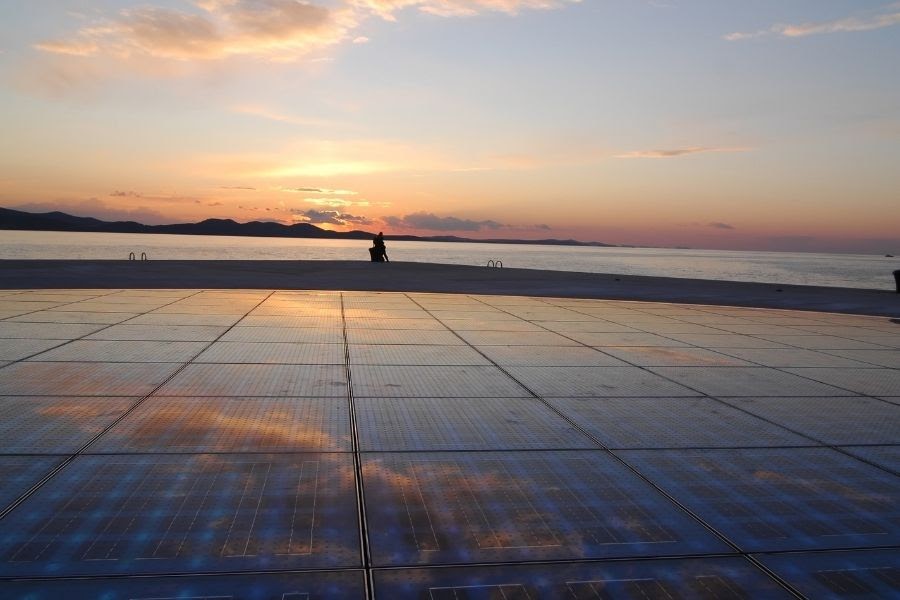Solar Trust Centre Interview with Dion Epstein of G-Store
Dion Epstein is the founder and managing director of G-Store, which provides holistic solutions for an all electric solar powered home, using rooftop...
4 min read
![]() Solar Trust Centre Team
:
May 27, 2021 7:00:00 PM
Solar Trust Centre Team
:
May 27, 2021 7:00:00 PM
The global outbreak of the Covid-19 pandemic in 2020 was a major test for the solar industry. Given the popularity of solar power as a technology in Australia and around the world, there was essentially no doubt the interest and support for solar power would outlast the pandemic. But here in Australia, there was substantial concern surrounding how much disruption the pandemic would cause to production and supply globally, and to businesses and consumers locally.
The caveat to this was the recognition that some byproducts of the pandemic – such as the rise of the work-from-home trend – could ultimately end up being a silver lining and boosting demand for solar. So has the pandemic helped or hindered the solar industry? Let’s look now.
Unsurprisingly, when the seriousness of the Covid-19 virus was properly recognised by Australia and other nations, the solar industry was one of countless sectors to face substantial disruption. Every nation was on a different timeline when it came to first recording a Covid-19 case within their border, but by the middle of the year it was plain and clear the global economy would be shaken to its core as a result.
During this period there was not only substantial concern surrounding the disruption to the solar industry in 2020 but delays to the planned transition to green energy in years ahead. Especially if a Covid-19 vaccine was never developed, or (even more worryingly) the pandemic’s danger increased further.
Part of the problem during this time was a (comparative) lack of diversity in the manufacturing and transport sectors of the supply chain. If 7 out of 10 of the world’s biggest solar manufacturers are located in China, it’s no surprise the outbreak of a pandemic in the country put a substantial dent in the production and delivery of solar products globally. And as many solar businesses located around the world were reliant on products from these manufacturers to serve customers in their own countries, the ‘knock on’ effect to installers was huge.
It’s of course necessary to remain mindful the Covid-19 pandemic is far from over. For some of us who’re fortunate to live in communities where eradication, vaccination – or a combination of both – presently sees few or no confirmed cases, it may now feel like Covid-19 is history. Unfortunately, this is an example where feeling and fact have a substantial disconnect.
The reality is even if a nation like Australia does finish its national vaccination drive by the end of the year – and joins other nations like the U.S. which has been administering in excess of 2 million vaccines a day and should be finished by then – ultimately there’s the expectation it’ll take at least until the middle of the decade for the international community to return to a sense of normalcy. This is because not only will many nations need that time to acquire and administer vaccines, but then begin the work of reopening their economies, and kickstarting a recovery plan. And in the interim, nations like Australia must successfully steer clear of a ‘third wave’ of Covid-19.
Global vaccine drives and related events are unlikely to have a big bearing on someone looking to sign up for a rooftop solar installation today. Sure, some additional delays or disruption due to the pandemic may occur, but for many Aussies businesses, it’s now largely back to business as usual. Nonetheless, Australian states and territories over the past year have seen an unpredictable mix of long lockdowns, snap lockdowns, and the easing of restrictions that follows a lockdown. So it’s essential to understand when it comes to the solar sector, the near future could dish up a mixed bag too. Put simply, uncertainty is certain to feature until the pandemic ends globally.
Many Aussies businesses in the solar sector and elsewhere have begun the work of a post-pandemic recovery with diversification in mind to prevent the risk of a future pandemic or similar challenge to the global supply chain once again dealing a savage blow to daily business. When it comes to the solar sector, recent commentary by the Asian Development Bank (ADB) is significant in this regard.
The ADB’s Yongping Zhai called for nations across Asia who’re yet to develop their own solar production capabilities, to now do so. Doing this would not only help reduce the risk of disruption to global supplies of solar products in future but also help streamline the transition to green energy in these nations. In this regard, although the pandemic has clearly resulted in an initial disruption to solar production and supply globally, it’s also driven new interest among investors and businesses in building a more robust and diversified sector.

While the Australian solar industry faced disruption due to Covid-19, ultimately the stats show it can look back on 2020 as a good one. In fact, a very good one – with 2020 being a record-breaking year for the local industry. According to the Australian Energy Council, more than 333,000 rooftop installations were added to the national capacity. This follows on from 2019 where approximately 284,000 installations were done. By any measure, seeing the previous year’s record smashed by around 50,000+ additional installations in a pandemic year is a real vote of confidence in the local sector.
While the global supply chain has experienced turbulence, the rise of the work-from-home era as a result of the pandemic’s outbreak also saw many households have a spike in energy bills, and thus a new interest in acquiring solar, increasing demand further. In turn, as well as the growing popularity of rooftop installations, a number of notable community battery programs and other initiatives are kicking off across the country. So although there’s no question the pandemic’s outbreak was a speed bump in the road for Aussie solar, the industry has gone from strength to strength. If it’s achieved this in a pandemic year, there’s every reason (challenges notwithstanding) to be optimistic about its ongoing performance in the months and years ahead.
Solar Trust Centre focuses on the latest solar and renewable energy stories. Visit our website here.

Dion Epstein is the founder and managing director of G-Store, which provides holistic solutions for an all electric solar powered home, using rooftop...
Energymatters reported that supporters and advocates of solar power often wonder how many solar panels it would take to power Australia. And if the...